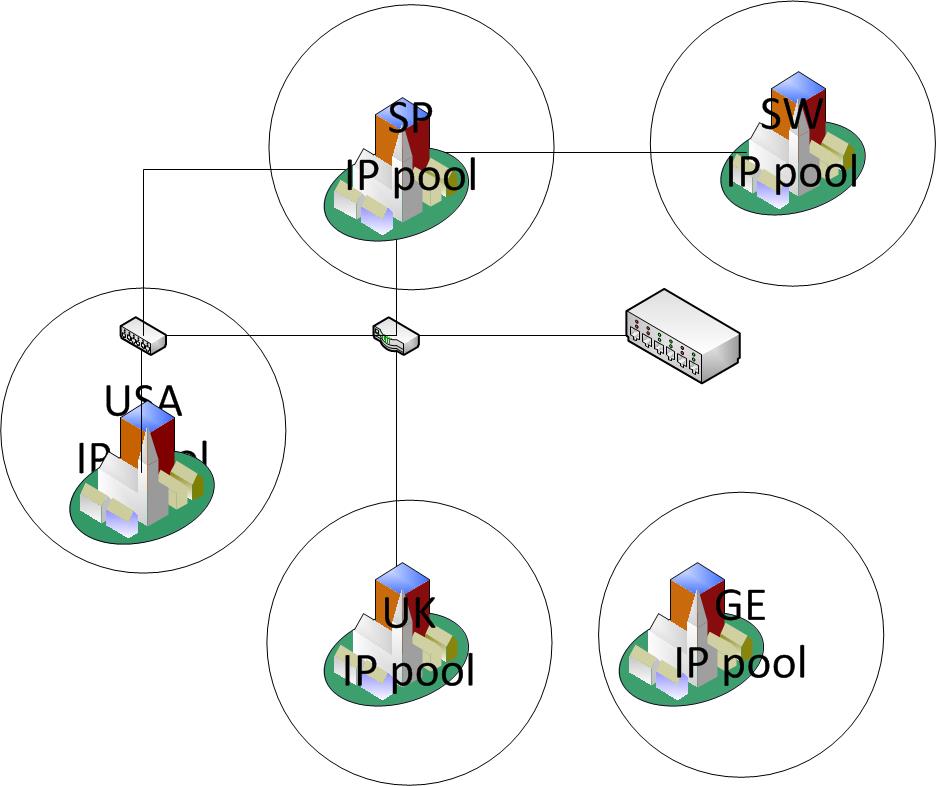How can blockchain technology overcome the problem of split networks.
As the idea of decentralized worldwide blockchain technology scatters, more and more people become aware of the value of the technology. Only imagination borders the use of blockchain technology. However, as the idea of being in control and in some cases beyond governmental control – it is about time developers start to think about the importance of stability and continuity if something goes wrong.
Developing of smart contracts and more energy efficient systems to secure the blockchain, thinkers starts to develop more specialized tokens and systems. All of them should work all over the world, charging low fees and spread wealth and growth all around the globe. This is great, and the excitement is almost limitless throughout. But – and there is ”a but” that must be solved before the masses start to adopt the systems worldwide. What happens if the internet splits into two or more not connected networks? In that case blockchain technology is unusable and unpredictable as it is now. That is because all focus have been on securing against double spending and fraught. But what if it is not fraught causing a split network resulting in a so called soft fork? What if it is a major hacker attack on certain parts of the world – certain countries? Causing the national security agencies to shut down international internet connection between one or more countries and the rest of the world? That would cause two parallel blockchains (forks) to run – perhaps even without any user notices it. And as soon as the connections are re-established – all transactions in the smallest blockchain would be lost into the space of bits and bytes, leaving businesses and users in a state of confusion and distrust to the technology.
How could that be solved?
With the implementation of smart contracts and sub tokens – it should be possible to implement systems that authorize certain transactions in split chains – collecting and rewrite to the main chain when the forks meet again.
That could to my knowledge be controlled by hardcoding into the maintenance systems some kind of IP pool authorization – and to demand a certain scatter in the verification of transactions to call for verification in e.g. 25 different IP pools that are geographical determined. As far as I know, all countries have a subscription to an IP pool making it possible figure out the geographical position (approximately) of any node based on it public IPv4 or IPv6 address.
Illustration below shows Germany disconnected from the rest of the internet – because GENSA decided to shut down the gateways to the outside internet for some unknown reason, it is just done. Normally there would be more than enough verifiers/masternodes/miners/stakers pending the syste, that are allocated within Germany to make the system secure and functioning. But as soon as GE is reconnected, all the transactions will be rejected because the chain on the rest of the internet net would probably be the greatest blockchain. The system cannot work in such situation.

In above scenarium this could perhaps be solved by using address pools and smart contracts to validate certain transactions. A basic root token e.g. called BART could be the basics of a blockchain like eth or Bitshare or similar. Verification of transactions in the BART token should be validated from a number of nodes geographically located in different address pools to be considered irreversible and added to the blockchain.
Four sub tokens could then be produced: BARTUS, BARTGE, BARTSP and BARTSW. BARTUS tx can ONLY be validated by nodes within the USA IP pool. BARTGE tx can ONLY be validated by nodes within GE IP address pool etc. Than the split blockchain fork, in above example the GE one would continue to work, but only with BARTGE. Then after a while the connection is back online and as the only transactions that can be validated within the GE IP address pool are the ones in BARTGE, the whole blockchain could safely be summerised and rewritten into the main blockchain. All transactions on the ww part of above example could include transactions in basic tokens and all the IP pools that are available exept the GE one. Because it would need to be verified decentralized, but within the GE address pool.
Users could secure themselves by having an amount of tokens that can be used inside the users address pool to be assured continuity, even though degraded to only include tx in the local token. That would secure the network to function, limited though during split networks by securing geographical bordered tokens to function also during times of limited worldwide connections.
Those tokens should be exactly the value of a basic token and should only be used for locking up a part of the basic token to ensure a functional local blockchain to work. Value would not be lost, as the user allocates a number of basic tokens to the local token, which has exactly the value of a basic token, enabling the split miners/masternodes/stakers etc. to continue working on transactions with the local token only.
When reconnected, all transactions in the split blockchain should be collected to a new block of transactions to be written into the main blockchain (to do that in a safe way devs must mark such transactions as intermediate until all of them are included into the main blockchain) thus deleting the split chain on completion.
Could that be done? How would the blockchain experts look at this way of securing continuity? Is it possible?
Could it be implemented in ETH EOS or similar smart contract systems?
Vote the post up if you think the problem needs attention.
/MT